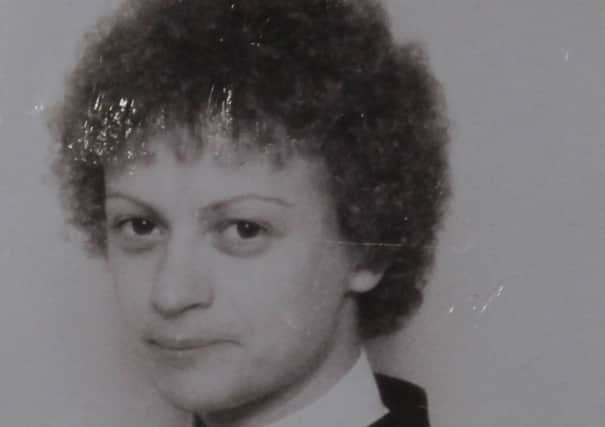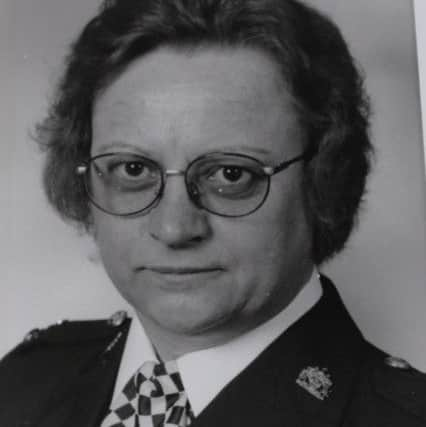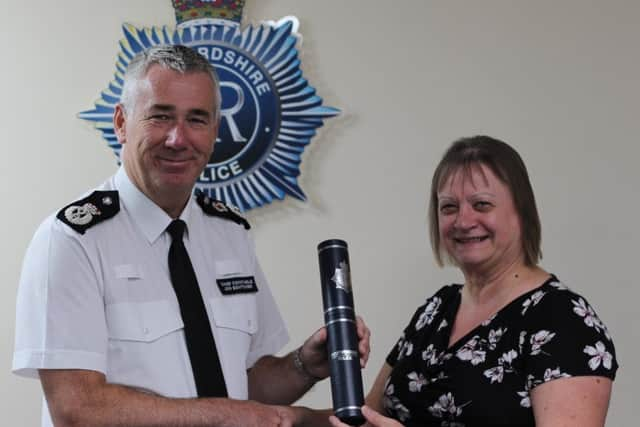Four decades of female policing in Bedford


Initially a Woman Police Constable (WPC), Carol joined Bedfordshire Police in 1976.
She said: “It was a completely different era – Life on Mars was quite accurate.
Advertisement
Advertisement
“Although WPCs were allowed on section, which was a fairly new way of working, we were still tasked with dealing with ‘women’s issues’, which involved dealing with any female or child victims.


“There were very few women in the force, in fact it was a rarity to have one on each section and when I joined I was the only woman on my intake.
“WPCs had to wear skirts; there were no trousers, a box-style hat, double-breasted jacket and a cape, which didn’t keep you warm or dry at all.
“It was quite different from the heavy kit officers have to carry around today.
Advertisement
Advertisement
“Female officers were also given a long-handled handbag to carry their small custom made truncheons.


“I remember it being said that it would probably be best to keep it in the handbag and swing the handbag if you need protection, the only use the truncheon would be for is breaking windows.
“During the ‘80s it was a period of unrest with various protests taking place across the country which Beds officers were seconded to, from the Greenham Common nuclear weapons protests, to animal rights, poll tax riots and the miners’ strikes.
“Women did not form part of the Police Support Units (PSUs) in those days, so it was our responsibility to maintain business as usual in force in the absence of our male colleagues.
Advertisement
Advertisement
“I received a number of commendations and congratulations, before being promoted in 1988 to a sergeant.


“This made the local newspapers as it was such big news a female being promoted to that level.
“One of my other greatest achievements was climbing Snowdon. As part of a team from Beds Police, we carried an MS sufferer up to the top of the highest mountain in Wales to help to raise valuable funds for the Multiple Sclerosis Therapy Centre in Barkers Lane, Bedford, to be built.
“I have also seen a huge change in technology over the decades, the most significant being a move to digitalisation.
Advertisement
Advertisement
“I have still got my police handbook and regulations, which were produced using a typewriter, you can feel the bumps on the page.


“The other major change has been in the devices used by officers.
“When I started we were provided with a two piece PYE radio, with an aerial that looked more like a thin knitting needle, where you spoke into one part and listened with the other.
“You had to be really careful to remember to take both parts with you.”
Advertisement
Advertisement
Carol played a key role in moving the force into the world of technology in the 1990s in the design, development testing and implementation of what was a £1million project to develop the first prosecution and custody system with links to the courts system.
As well as the introduction of the first handheld breathalyser kit, intoxilizer machine and the drink drive automated breathalyser procedures.
In 2000 Carol was made a Custody Sergeant, but unfortunately suffered an accident at work and so had to move into the world of crime auditing, to ensure crimes were being allocated, recorded and investigated properly.
In 2007 she made the decision that having completed more than 31 years of service, this was the optimum time to retire as a police officer and move into the Criminal Justice and Custody Department as a performance and compliance officer.
Advertisement
Advertisement
This role involved ensuring the welfare and dignity of detainees was preserved and a pre-release risk assessment was carried out.
Carol developed a product which allowed key questions to be inputted on the custody system about the dignity and risk on a detainee’s initial detention, as well as on their pre-release, accompanied with a document with key agencies’ details if they needed follow-up support.
Following an HMIC inspection in 2010 it was noted these should be rolled out nationwide as ‘best practice’.
Carol is now a policy and performance officer with the collaborated Criminal Justice department, where she ensures case files and Crown Prosecution Service processes are streamlined.
Advertisement
Advertisement
She added: “Looking back over the last 40 years, I feel I have accomplished a lot and have no regrets.
“It is not known what the future will bring, and I have often been asked ‘when are you going’ or ‘is it not time for you to retire?’.
“To this day I have not been able to answer this and just smile.”